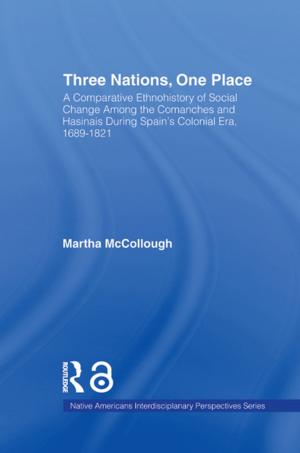Territories of Social Responsibility
Opening the Research and Policy Agenda
Business & Finance, Business Reference, Business Ethics| Author: | Patricia Almeida Ashley | ISBN: | 9781317046110 |
| Publisher: | Taylor and Francis | Publication: | March 9, 2016 |
| Imprint: | Routledge | Language: | English |
| Author: | Patricia Almeida Ashley |
| ISBN: | 9781317046110 |
| Publisher: | Taylor and Francis |
| Publication: | March 9, 2016 |
| Imprint: | Routledge |
| Language: | English |
CSR is a fragile concept if conceived only at the organizational level or driven only by leadership will. Many writers deal with aspects of social responsibility, but most deal with it as this kind of organizational and voluntary initiative. Few address the wider policy agenda. The contributors to Territories of Social Responsibility - researchers and practitioners from four continents - all participated in an international workshop co-ordinated by Patricia Almeida Ashley as part of her role as Chair in Development and Equity at the International Institute of Social Studies. They form a policy network contributing to studies on the concept of a multi-actor, multilevel and territorial approach to social responsibility and governance, oriented towards global, regional or local development and equity goals. This book introduces a new conceptual framework and promotes a research and policy agenda relating to it. A new model sees CSR embedded in institutional and legal frameworks, communicated and understood through a vector of communication and knowledge influencing situated culture and social values, and classified into three levels of ethical challenges. All of this can be expressed into the social processes of education, governance, the development of civil society, and policy making - a renovation of the existing perspectives on the concept of social responsibility. This ground breaking book integrates conceptual and empirical contributions and opens a research and policy agenda for the future. It will appeal to academics, higher level students, policy makers, and to leaders of and advisors to organizations affected by social responsibility issues.
CSR is a fragile concept if conceived only at the organizational level or driven only by leadership will. Many writers deal with aspects of social responsibility, but most deal with it as this kind of organizational and voluntary initiative. Few address the wider policy agenda. The contributors to Territories of Social Responsibility - researchers and practitioners from four continents - all participated in an international workshop co-ordinated by Patricia Almeida Ashley as part of her role as Chair in Development and Equity at the International Institute of Social Studies. They form a policy network contributing to studies on the concept of a multi-actor, multilevel and territorial approach to social responsibility and governance, oriented towards global, regional or local development and equity goals. This book introduces a new conceptual framework and promotes a research and policy agenda relating to it. A new model sees CSR embedded in institutional and legal frameworks, communicated and understood through a vector of communication and knowledge influencing situated culture and social values, and classified into three levels of ethical challenges. All of this can be expressed into the social processes of education, governance, the development of civil society, and policy making - a renovation of the existing perspectives on the concept of social responsibility. This ground breaking book integrates conceptual and empirical contributions and opens a research and policy agenda for the future. It will appeal to academics, higher level students, policy makers, and to leaders of and advisors to organizations affected by social responsibility issues.















